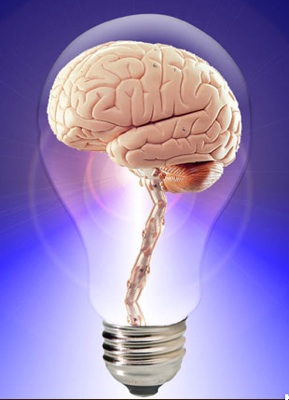The Emotiv Epoc is the latest and most exciting development in computing technology since the Internet. The Australian-based Emotiv Systems commercially available, 300 dollar priced breakthrough “is a high resolution, neuro-signal acquisition and processing wireless neuroheadset. It uses a set of sensors to tune into electric signals produced by the brain to detect player thoughts, feelings and expressions and connects wirelessly to most PCs.”
The online videos circulated by the company as well as new owners of the Emotiv Epoc feature users playing games, surfing content, and even controlling remote toys. This new interface is the most logical step, technologically speaking, but also the most breathtaking. From artistic to pragmatic, it’s difficult to imagine a field of human endeavor that will not be affected by this cyberdelic development. President and Co-Founder of Emotiv Tan Le states, “Magic and I think mind control is probably mankind’s most grandest and oldest fantasies.” The Emotiv Epoc fulfills this dream.
This presents a revolutionary new way to interface with machines. If humanity adapts behaviorally due to the local and available technological achievements, a development like the Emotiv Epoc may equally revolutionize the way people engage with one another socially; outside of the computing experience.
The data saturated world has created a generation of technologically savvy individuals, which some authors like Sherry Turkle suggest has had a regressive influence on our society. Turkle has pointed out personality fragmentation due to prolonged social networking and deeply invested avatars (an extreme case would be of the Everquest player that committed suicide over the loss of his digital persona). “Distracted: The Erosion of Attention and the Coming Dark Age,” by Maggie Jackson, outlines how our media prowess has dangerously diminished our attention span. A development like the Epoc, which demands the users have some level of competency in controlling their minds, very well may counter these predicaments by seeding within the user a more critical approach and interest in how the mind works–the logical avenue being meditation.
This gadget may bring to light the elastic, dynamic nature of consciousness and reality to a wider audience. Ken Wilber demonstrated that the human brain could be conditioned to slip into profoundly different brainwave states at will. The work of military intelligence scientists, like Russell Targ, Thomas Campbell and The Monroe Institute (a civilian company) are making altered states of consciousness, consciousness exploration, remote viewing, and the exploration of other physical realities all the more popular. Their conclusions are a scientifically sound echo of what for human beings have experienced for millennia, in the writings of Patanjali, for instance.
Their work, like the tagline of the Emotiv EPOC, states the utter significance of human existence, “You think, therefore, you can.”
Emotiv Epoc lecture at Stamford University:
http://www.youtube.com/watch?v=TwUyOmtxh-U
http://www.youtube.com/watch?v=0TKhPZAhlLA
http://www.youtube.com/watch?v=7utG3NqhBoU















